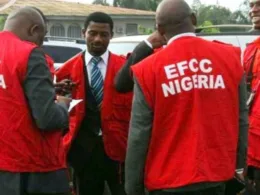NEC endorses funds for flood relief, launches creative cultural hubs, and secures $500M for education and healthcare development under the HOPE project.
The National Executive Council (NEC), chaired by Vice President Kashim Shettima, convened on December 12, 2024, to address Nigeria’s growing environmental crises and introduce innovative initiatives to drive socio-economic growth.
The Deputy Governor of Akwa Ibom State, Akon Eyakenyi, highlighted the progress made by an ad hoc committee chaired by Kogi State Governor Ahmed Ododo. This committee has worked diligently to recommend and implement financial support mechanisms for flood-prone states.
Eyakenyi disclosed that the NEC approved the disbursement of remaining funds earmarked for flood and erosion mitigation. These funds will be allocated to state ministries and agencies, ensuring swift intervention in areas worst affected by recent environmental disasters.
She remarked:
“The council resolved to conclude the committee’s activities, transferring responsibilities to a specialized task force for ongoing flood and erosion mitigation efforts.”
Lagos State Governor Babajide Sanwo-Olu introduced the Renewed Hope Creative Villages Initiative, designed to transform historic sites into thriving cultural hubs. This initiative aims to empower local artists and entrepreneurs, stimulate tourism, and protect Nigeria’s rich cultural heritage.
Sanwo-Olu noted:
“This is a unique opportunity for us to harness the power of creativity in our historic locations, creating jobs and boosting revenue through cultural tourism.”
HOPE Project: Advancing Human Capital Development
The NEC also emphasized the importance of the Human Capital Opportunities for Prosperity and Equality (HOPE) Project, which focuses on enhancing education and healthcare through better governance and service delivery.
The World Bank has approved $500 million for the HOPE-GOV initiative, with another approval for HOPE-EDU expected by March 2025. This funding will address key gaps in healthcare delivery and educational infrastructure across the states, ensuring transparency in fund allocation and the recruitment of skilled professionals.
Despite the progress, Eyakenyi acknowledged significant challenges in combating environmental disasters:
- Funding gaps hinder timely interventions in flood and erosion mitigation.
- Poverty and socio-economic barriers exacerbate the impact of disasters on vulnerable communities.
- The interplay of multiple environmental issues, such as flooding and desertification, complicates response strategies.










Join our Channel...